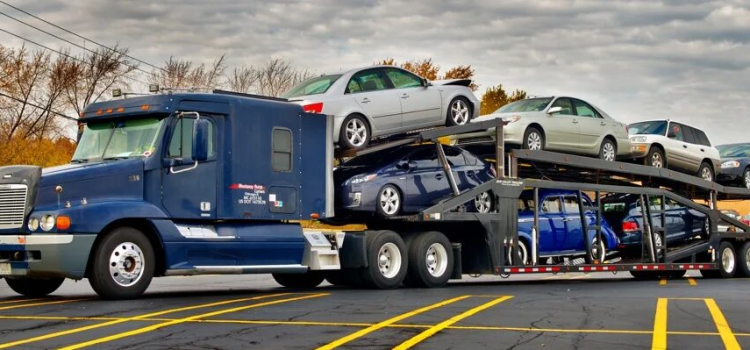
Introduction
If you’re planning auto relocation in Florida, you’ve probably started to wonder why car shipping quotes can vary so much. One person pays $700 to move their sedan across a few states, while someone else drops $1,500 for a similar route. What gives?
The truth is, car shipping isn’t one-size-fits-all. Several moving parts influence the price you’ll pay, and knowing how they work can save you from unexpected surprises. Whether you’re relocating for work, sending a car to college, or just skipping the long drive, here’s what really goes into the cost of shipping your vehicle.
What Factors Affect the Cost of Shipping a Car?

1. Distance and Route
Unsurprisingly, the farther your car needs to go, the more it’ll cost. A cross-country trip will run higher than a short-hop transport within the same state. But distance isn’t the only route-related factor. The popularity and accessibility of your pickup and delivery locations also play a big role.
For example, routes into and out of major Florida cities like Miami, Tampa, or Orlando tend to be more affordable than more rural areas. That’s because carriers run these lanes often and can load multiple vehicles on a single trip. On the other hand, if your car needs to be picked up from a remote town or dropped at an address with tricky access, the cost goes up due to additional time and fuel.
2. Time of Year
Auto shipping is seasonal, especially in states like Florida. Snowbird season (roughly October through April) creates a surge in vehicle transport as people head south for the winter. During this time, carriers are in high demand, and prices rise accordingly.
Summer months can also bring price bumps, as families relocate and college students move around. If you’re looking to save, consider scheduling your shipment during off-peak months when demand is lower and rates are more competitive.
3. Type of Vehicle
Not all vehicles take up the same amount of space on a trailer. A compact hatchback will cost less to ship than a lifted pickup or a heavy SUV. Larger and heavier vehicles require more room and may even limit the number of cars a carrier can load, which directly affects pricing.
Modifications like oversized tires or non-standard dimensions can also bump your quote. It’s important to provide accurate vehicle details when requesting estimates so carriers can plan accordingly.
4. Transport Type: Open vs Enclosed
This is one of the biggest decisions you’ll make in the process. Open transport is the most common and cost-effective method. Cars are loaded onto a multi-car carrier, much like the ones you see on highways.
Enclosed transport, on the other hand, protects vehicles from weather, road debris, and exposure. It’s ideal for luxury, exotic, or classic cars but comes at a premium. Expect to pay 30% to 50% more than open shipping.
For standard vehicles headed to or from Florida, open transport usually makes the most sense. But for rare or high-value cars, the added protection of enclosed shipping might be worth the extra expense.
5. Delivery Method: Terminal vs Door-to-Door
Door-to-door service means your car is picked up and delivered as close to your preferred addresses as possible. It’s convenient, but in dense cities or tight neighborhoods (like certain Florida beach towns), accessibility can be an issue. In those cases, carriers may meet you at a nearby parking lot or wide street.
Terminal-to-terminal shipping is sometimes cheaper, but you’ll need to drop off and pick up your vehicle at a designated location. This option is less common nowadays, as most customers prefer the convenience of door-to-door service despite the slightly higher cost.
Door-to-door service is particularly popular with auto relocation in Florida because of how spread out cities and towns can be. It eliminates the hassle of coordinating with distant terminals, especially when moving across the state or the country.
6. Fuel Prices and Market Conditions
Fuel costs are a hidden influence. When diesel prices spike, so does the cost of transport. Carriers build this into their rates to cover their operating expenses. The broader market also matters. If there’s a shortage of drivers or increased demand across certain shipping corridors, quotes can rise quickly.
7. Urgency of Transport
Need your car picked up tomorrow? That’s going to cost more. Expedited shipping jumps you to the front of the line but requires a premium since carriers need to rearrange routes or fill last-minute gaps. Flexibility with your timeline often translates into savings.
Wrapping It Up
Understanding what affects car shipping costs gives you a real advantage when planning your move. Especially for auto relocation in Florida, where seasonal demand and geographic variety can heavily influence quotes, knowing what to expect allows you to make informed choices.
If you’re looking for experienced professionals who understand how to navigate these variables without cutting corners, you’re not alone. Many drivers turn to East Coast Auto Haulers for their consistent service, transparent pricing, and ability to manage even the most time-sensitive moves with precision. From high-traffic Florida routes to less traveled stretches, their team knows how to get the job done efficiently.
Real-World Example: Coast-to-Coast Shipping Costs
| Factor | Impact on Cost | Explanation |
|---|---|---|
| Distance (2,800 miles) | $1,200 | Standard rate for an open trailer. |
| Vehicle Type (SUV) | +$240 (20%) | Larger vehicle surcharge. |
| Enclosed Transport | +$800 | Added protection for high-value car. |
| Door-to-Door Service | +$180 (15%) | Convenience surcharge. |
| Peak Season (July) | +$300 | High demand fuel surcharge. |
| Total Estimated Cost | $2,720 |
Conclusion
Shipping your car doesn’t have to be a financial mystery. By understanding the factors affecting car shipping cost—distance, vehicle size, transport type, seasonality, and extras—you can better plan and budget. Remember to compare multiple quotes, verify insurance, and balance convenience with cost. With this knowledge in hand, you’ll secure the right auto transport pricing for your needs. Whether you choose open or enclosed trailers, terminal or door-to-door service, planning ahead and staying flexible are your best tools for a smooth, cost-effective vehicle move. Safe travels!
Call (844) 931-8774 for a free quote and find out what your move should really cost.










